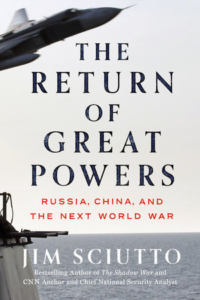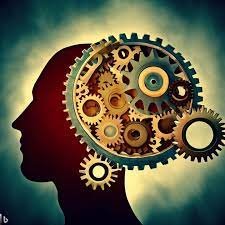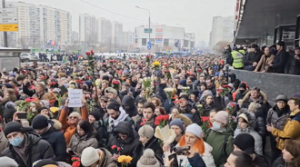
Arquivo para a ‘Information ethics’ Categoria
Infinity, peace and transformation
Ours of infinity, of even the paradox that represents the profound change that occurs in astronomical phenomena such as black holes, where even quantum physics is questioned, leads us to a new worldview of matter and spirituality.
occurs in astronomical phenomena such as black holes, where even quantum physics is questioned, leads us to a new worldview of matter and spirituality.
Edgar Morin speaks of “resistance of the spirit” due to the dramatic moment we are experiencing of civilizational crisis and the threat of escalating wars. Without a truly concrete call for peace, the risk of current conflicts escalating and new ones emerging is immense.
This resistance requires both personal and collective positioning, truly defending and living peace, practicing it in our daily relationships, alongside those who pass through our lives.
Peace depends on people who plant peace, says the biblical reading John 12:24: “truly, truly I say to you, unless the grain of wheat that falls into the earth dies, it remains just a grain of wheat; but, if it dies, then it produces much fruit”, so it is necessary that those who truly desire it sow peace, but not in speech, but in everyday attitudes.
It does not mean that we do not desire changes, and that they are not necessary, also in this aspect the grain of wheat must fall into the earth and “die”, but this death seen precisely with what we desire: transformation, not disappearance or terminal death.
Looking at the infinite, the divine and the eternal is going beyond our materiality, our daily and human impulses, setting aside time for reading, contemplation, meditation and recharging our energies, a peaceful attitude depends on this human/divine balance.
Without a true and humanly reciprocated ascesis, we remain in what Peter Sloterdijk calls a “life of exercise”, we do the exercises to do so, but we do not have a human ascension (a true ascesis).
Increasing our inner life, transmitting it in relationships, this is true asceticism.
End of history or return of powers
When Francis Fukuyama wrote about  “The End of History” he was under the impact of the fall of the Berlin Wall in 1989, three decades after Jim Sciutto said on CNN that when the war in Ukraine began, we were living in a “1939 moment”, in fact, there is a link between the first and second wars, the end of the second and the possibility of a third.
“The End of History” he was under the impact of the fall of the Berlin Wall in 1989, three decades after Jim Sciutto said on CNN that when the war in Ukraine began, we were living in a “1939 moment”, in fact, there is a link between the first and second wars, the end of the second and the possibility of a third.
Jim Sciutto’s book “The Return of Great Powers” talks about this, “Russia’s invasion of Ukraine is part of that, but in reality, this power struggle impacts every corner of our world – from Helsinki to Beijing, from Australia to the North Pole. This is a battle with many fronts: in the Arctic, in the oceans and skies, in artificial islands and redesigned maps, and in technology and cyberspace.”
Firstly, we detected this secondary factor, but fundamental to see technology not from the perspective of the domination of minds, capital or socialism, but its negative use due to wars and the struggle for power.
The Return of the Great Powers analyzes this new historical condition, analyzes this new reality after the Cold War and after the fall of the Berlin Wall, the Russian and Chinese governments increasingly aligned and the critical point of a new global nuclear arms race, and in poses a question: considering uncertain, even terrifying results, will it be possible for the West, Russia and China to avoid a new World War?
The analysis made by Jim Sciutto is not as important as the facts and realities that bring to light new questions and concerns about the external results of this new world reality, a moment of strong turbulence in which the possibilities for peace are running out as the year passes. time and the increasing involvement of different nations.
Last week’s picture points to this, Russia not ruling out a confrontation with the West and the United States preparing for a scenario of nuclear confrontation, the return to common sense and the disarming of exalted spirits involves losses and damage to some nations , it is not about surrender, but acceptance of the current framework of “new balance” for peace.
As Edgar Morin states, a spirit of resistance is needed at this time to return to the path of universal fraternity and peace.
Serenity and light
There is only light when there is serenity, although Heidegger’s text is not directly linked to his concept of “clearing”, it is indirectly linked, as it calls for reflection, pure thought, one that “meditates” and does not just act.
Heidegger’s text is not directly linked to his concept of “clearing”, it is indirectly linked, as it calls for reflection, pure thought, one that “meditates” and does not just act.
Heidegger clarifies that: “the rootedness (die Bodentändigkeit) of modern Man is threatened in his most intimate essence. Furthermore: the loss of rooting is not caused only by external circumstances and fatalities of fate, nor is it the effect of negligence and the superficial way of Men. The loss of rootedness comes from the spirit of the time in which we were all born” (p. 17), thus is the absence of this clearing.
The domination by ideal and “calculating” models leads to a greater commitment to the gears of reason, than the gears of being and human dignity, going beyond ethics which is deeply linked to the “ethos” of the way of being and the character.
This is not a pure Manichaeism, because this also led and still leads to social and political dualism, but one that excludes the other, the different and forgets their human dignity, we remember Eduardo Galeano’s speech about war and the evil it entails. closes (post).
The pure reasoning of the calculating gear leads to precise business calculations, company management and even certain educational logic, but they forget the foundations of human ethics: respect for life, sociability among everyone and care for the planet.
Evil is thus seen as the absence of light, the impossibility of a clearing that dignifies and shows the truth to men, and this is independent of any rational logic because it is in the diffuse human logic that unites the unequal and equalizes the different.
For Christians, it is fundamental to remember the principle of light that erases all darkness, like a small candle lit in the pitch black, the Christian clearing, thus moving away from error and discord (Jn 3:21): “But whoever acts according to the truth, approaches the light, so that it becomes clear that your actions are carried out in God” and there is nothing more divine than truth.
If Heidegger’s rootedness refers to his loss in the “spirit of the age”, the deeper rootedness is that which comes from human origin, be it anthropological or ontological.
Non-thought today
Heidegger’s text on Serenity, written in 1949 at a ceremony commemorating the centenary of Conradin Kreutzer’s death, in his hometown Meßkirch, which, as it was also Martin Heidegger’s hometown, was called to speak at the event, book This is part of your speech.
a ceremony commemorating the centenary of Conradin Kreutzer’s death, in his hometown Meßkirch, which, as it was also Martin Heidegger’s hometown, was called to speak at the event, book This is part of your speech.
The text of serenity reveals how much we are induced to a calculated thought that runs from opportunity to opportunity, it is fundamental to understand that what is attributed to the digital world, was already happening long before this, and is not restricted to the digital universe: “ this thought continues to be a calculation, even if it does not operate with numbers, nor does it use a calculating machine, nor devices for large calculations” (pg. 13), even long before the digital universe, he talks about it and says that it is not the one you’re talking about.
The dynamic that many attribute to the digital universe was already very present in modern man: “thought that calculates (rechnend Denken) never stops, never comes to meditate. The thought that calculates is not a thought that meditates (ein besinnliches Denken), it is not a thought that reflects (nachdenkt), it is not the meaning that reigns in everything that exists” (idem, pg. 13), that is, of the late 1940s and before modern computers.
It is worth translating the German words: ein besinnliches Denken (a contemplative thought) and nachdenkt (to think about) and das rechnend Denken (calculative thought).
Thus, for the philosopher there are two forms of thought: that which calculates and that which meditates, and it can be thought that the second does not perceive reality, “contributes nothing to carrying out praxis” (pg. 14), can lead to pure reflection, persistent meditation being “too “high” for common understanding” (idem).
The author says that the only correct thing is that the truth of a thought that meditates appears as little spontaneously as the thought that calculates, both require efforts.
The fact that contemporary man is linked to a way of thinking is because this is the current way in which thought was elaborated and trained, linked to rational and ideal logos.
However, he considers that each person can follow the paths of reflection within their limits and in their own way: “We do not, therefore, in any way need to elevate ourselves to the “higher regions” when we reflect. We just need to linger (verweilen) close to what is close and meditate on what is closest: what concerns each one of us, here and now; here, in this piece of homeland; now, in the present universal hour” (pg. 14).
Of course, Heidegger reflected on the celebration in his hometown, but this applies to all the events we experience in our lives.
Heidegger, M. (no date) Serenidade (Serenity). Transl. de Maria Madalena Andrade e Olga Santos. Lisboa: Instituto Piaget, s/d.
Lonely Voices for Peace
The Uruguayan writer Eduardo Galeano took a stand against the war, famous for having written “The Open Veins of Latin America”, who was the author of more than 40 books, including The Book of Hugs, which has a recording that was once again published in the youtube for the impact it has.
a stand against the war, famous for having written “The Open Veins of Latin America”, who was the author of more than 40 books, including The Book of Hugs, which has a recording that was once again published in the youtube for the impact it has.
He begins his speech by saying: “No war has the honesty to confess: I kill to steal” and then goes on to unmask the various false reasons why they try to justify their attitudes, “wars always invoke noble motives, they kill in the name of Peace, in the name of God, in the name of progress” and others, but if they can’t, the media can help, and it’s not just the new media, he said in his time about the mainstream press.
The toxic culture that someone has the solution to the world’s biggest problems, that there is some “enlightened” group, prevents openness to dialogue and finding paths to peace.
The ancient models proposed: the Pax Romana that subjects the people, the eternal peace that is the idealistic model, the peace that solves the problems of social justice, all of them invoke war in the last instance.
There was a time when it was possible for people to take to the streets and demand peace, and call out the authorities for the insanity of their provocative and war-inducing positions, even if disguised in promises of peace as Galeano said, and all of them hide theft, the greed for wealth and the mockery of the people and the poor.
Also of little value are the “elevated” spirits who make beautiful romantic and ideal phrases, which have nothing of reality or serenity, they are just conscious or unconscious alienation, they are voices that flee from the real problems that humanity faces: a civilizational crisis.
The Pope is one of these voices, there are also lone voices in the UN, small countries that despite being in spheres of influence, have the wisdom and discernment that will also suffer if the war prospers.
Eduardo Galeano draws attention in his video that the countries that make up the UN Security Council are precisely those that have the most weapons, and the arms industry is also an economic source for those who own it, but it generates wealth for isolated groups.
There is a lack of unequivocal voices for peace, voices that do not ignore the situation and real positions.
Russia cornered and Israel questioned
The panorama of the two main wars that  worry world leaders continues to have sad moments and episodes in their development, in Russia the death of an activist in prison in Siberia and in Gaza the difficulties of humanitarian aid.
worry world leaders continues to have sad moments and episodes in their development, in Russia the death of an activist in prison in Siberia and in Gaza the difficulties of humanitarian aid.
While they win on the battlefield, these two superpowers lose on the diplomatic field since for many authorities the situation is one of inhumanity and a threat to civilians.
In Russia, the death of Alexei Navalny in prison brought thousands of people to his funeral (photo), the lawyer, activist and blogger was intensely active and was respected by a large part of the population, according to Russian sources 67 people were arrested at the funeral, and Sweden’s entry into NATO also exposes the confrontation with war.
Putin threatens retaliation against Sweden while raising tone with the West stating that an entry of Western troops into the Ukraine war would lead to nuclear chaos, in response to President Macron of France who said he would not hesitate to send troops, but other countries refuted this threat stating that they would not do so.
The sending of humanitarian support to the Gaza strip creates controversy with Israel, which it says facilitates, but the international reaction calling for an end to hostilities, while demanding the release of hostages still under Hamas control, appears prominently in the world press.
The one who raised the tone with Israel was the President of Turkey, Erdogan, who stated that Israel was committing an “attempted genocide” with the military operation in the Gaza Strip.
Numerous countries have already spoken out for the end of the war, and the Pope has also recently spoken out, saying “I carry in my heart every day, with pain, the suffering of the population in Palestine and Israel, and asking for safe access to humanitarian aid.
The dangerous escalation of these two wars could lead to a civilizational tragedy and wisdom and serenity are needed from world leaders.
The next and the business
The polycrisis that involves humanity, in the words of Edgar Morin, which was also adopted (from another perspective) by Adam Tooze, professor of History at Yale University.
words of Edgar Morin, which was also adopted (from another perspective) by Adam Tooze, professor of History at Yale University.
In the book Terra Pátria the author has already painted a picture of a reborn nationalism, it is written in the preface of the Brazilian edition written by Juremir Machado da Silva:
“Terra-Pátria, in which Anne-Brigitte Kern collaborated, is the fundamental book for examining the nationalist phenomenon today. Everything is in it: homeland, nation, universalism, identity, ecology, politics, community, etc. The mechanisms for understanding the complex contemporary social network are provided with the clarity usual in Morin’s text” (MORIN, 2003, 14).
However, history has moved in the opposite direction, unable to take a step forward, now wars, ancient utopias and fundamentalist spiritual models (not to be confused with orthodoxy because it is the true foundation of religions and cultures).
The social relationship deteriorates, the blame would be on techniques, individualism or even a wave of demonic possessions, however what happens is simply a lack of an authentic model of solidarity and here utopias and religious cultures must be analyzed.
Utopias because they retroacted models from the beginning of the 20th century, Adam Smith’s nationalism and Lenin’s Bolshevism, religious cultures because they took refuge in fundamentalism.
There is little outside of these perspectives, but they exist, there is hope where each person is treated with dignity, empathy is a model of coexistence and life as a whole treats man as a whole and it is possible to reintegrate him into standards of solidarity and respect.
The relationship with a neighbor is not a business, nor can it dissolve into a “social friendship” which is just a surface of what is truly human, the relationship with the Other.
Not a few authors wrote about this, even Jürgen Habermas addressed the topic, but it concerns the effective relationship between two people and not the generic social or cultural relationship, which generally involve interests and relationships with thought bubbles.
Christian singer Aymeê from Pará went viral when she sang the song “Evangelho dos Phariseus” which talks about child exploitation on the island of Marajó, the fires and the fact that tithe matters more than hearts in many churches that have transformed the message of love into business.
MORIN, E. E KERN, A.B. (2003) Terra-Pátria (Earth-World). Transl. Paulo Azevedo Neves da Silva. Brazil, Porto Alegre : Sulina ed.
(Português) O próximo e a amizade social
Paul Ricoeur’s text “Le socius et le prochain” (the partner and the neighbor) has already been explored in this post, highlighting the difference between a limited temporal relationship of partner and a relationship of philia and friendship that can last a lifetime: the next.
has already been explored in this post, highlighting the difference between a limited temporal relationship of partner and a relationship of philia and friendship that can last a lifetime: the next.
We now want to reread the comment made by Henri Bergson on this text, in which he articulates that the “I” starts from a “we” that we construct as an “I”, but that it is not separate from this, so the question arises that “we ” it’s that?
Does it designate these other people that we encounter every day in our family and professional environments, or this diffuse presence of others, of “everyone” that, for example, we claim when we try to make someone understand?
It means that we act in a way that is compatible or incompatible with life in society: “what would happen if everyone liked you?” in fact, there are, to say the least, two very distinct relationships with others: others as structure and others as praxis.
By the first term, this basis is understood as the efficiency of laws, institutions, and even more so, the awareness we have of our incessant visibility in the eyes of society: what is done is done based on the possible existence of others, even when no one is physically “there”, by the notion of another as praxis, we must understand the actions through which someone else, however, this distinction corresponds exactly to what Paul Ricoeur wrote in his book “History and Truth”, written to differentiate between “partner and neighbor”, because not only in the business world, but also in politics and social groups, what is true can be related to some narrative of the “society” belonging to.
We can speak of the presence of the Other as a structure in the sense that the socius designates this place, this simultaneously implicit and legal consideration of an invisible, anonymous, almost abstract other, but at the same time omnipresent, a bit like conditional, who would never cease to be presente, manifest to us in the Present, to become present, but never physically (but mentally, constitutionally).
By “near”, Paul Ricoeur designates the immediate, punctual physical presence of another person I know. We have good experiences of being close in big cities, as there we experience many promiscuous situations (subway, queues, etc.), but at the same time time, this crowd with which I am forced to compose is not made up of “neighbors”, since we do not know them.
If we activate praxis with others, always passing through the “socius” structure, the relationship presupposes a margin of choice, of election, of desire for approximation or rejection, as if our gross salary and our net salary, what is taken away of our salary paid, through supervision by an administrative authority, the “organization”, the State, social security, etc.
Thus the partner is linked to a social “praxis”, while the next depends only on a choice of human relationship independent of the structural relationship to which he is subject.
Ricoeur, Paul (1968) “The socius and the neighbor”, in History and Truth (in portuguese: História e Verdade), trans. F. A. Ribeiro. Companhia Editora Forense: Rio de Janeiro, Brazil.
Procrastinate and do good well
Procrastination means postponing tasks that are normal in everyday life

Credits Harvard Business Review
and other exceptional ones that cannot be postponed, the same Society of tiredness (Byung Chul-Han wrote a book) is also the society of procrastination.
Postponing tasks is counterproductive, when you want to optimize your time and have time to rest, do leisure or meditate, you need to not procrastinate and do the necessary tasks so that there is time available to feel the Aroma of Time (another book by Byung Chul- Han).
However, we can be involved in unnecessary activities, in small and large vices, which in addition to stealing our time, also steal our time to stop, rest and Be.
It is a human problem of all times, for those who believe that this happens because of new media and cell phones, which can be addictions like others, as the ancient poet Hesiod (800 BC) wrote: “leaving your work until tomorrow and the next day” is a human problem.
Harvard researcher Caroline Webb in an article in the university magazine wrote: “this is because it is easier for our brains to process concrete things rather than abstract ones, and the immediate discomfort is very tangible compared to the unrecognizable and uncertain future benefits”, Therefore, activities that take us out of our routine and place us in a social dimension, that is, with the Other, move our brain to “uncomfortable” regions.
Believing that you have to wait until you’re in a good mood to do something is a trap that can lead to procrastination. Joseph Ferrari, a psychology professor at DePaul University in the United States, discovered that the thought “I’m not in the mood to do X task” can lead to a vicious cycle.
Perform small tasks, which professor and researcher Tim Pychyl tested and confirmed the effectiveness of: “one that students started, they evaluated the tasks as less difficult and less stressful, and even more enjoyable than they thought”, so this returns the routine.
Tasks such as making the bed, preparing breakfast, removing the dishes and washing them, and others can also bring a reward, taking away stress and restoring harmony around you.
If done to do something good, and if done well, they also bring a spiritual reward and they often feel an “inexplicable” relief that is the result of doing something well.
Reference:
Webb, Caroline. How to Beat Procrastination, Harvard Business Review, 2016, Access in: february 2024, Available in: https://hbr.org/2016/07/how-to-beat-procrastination
2 years of war and diplomacy
February 24th marked 2 years of Russia’s war with Ukraine, which the Russian government calls a “special operation”, which has already killed thousands of civilians in Ukraine, which caused a rupture with the West and which has no prospect of a truce and can scale to Europe.
with Ukraine, which the Russian government calls a “special operation”, which has already killed thousands of civilians in Ukraine, which caused a rupture with the West and which has no prospect of a truce and can scale to Europe.
Despite the weakening, Zelensky’s speech promised victory, although he suffered setbacks at the beginning of the year on several fronts, Putin’s speech is increasingly fierce and eloquent and a direct confrontation with NATO forces, the which would be a tragedy for the entire planet due to the war and nuclear potential that would be involved.
In Palestine, Israel continues with bombings already reaching the border city with Egypt of Rafah, in the suburb of Shaboura, according to the Gaza Ministry of Health, 97 people were killed and there were also attacks in some neighboring villages.
Qatar will host a meeting between Hamas and Israel with the aim of finalizing a truce agreement this week, according to Egyptian sources, the United States always considers a definitive peace agreement possible, but continues to support Israel and continues conflicts with the Houthis of Yemen that prevents the passage of American-flagged cargo ships.
A new strategy in Yemen has been tactical forces, led by the United Kingdom (pictured), that assist in both mapping and bombing the Houthis’ land bases, as they have no vessels, carrying out attacks on ships from land bases.
Brazilian President Lula caused a serious crisis with Israel by comparing the current war in Israel with the Nazi period, precisely the biggest genocide and the most cruel war against the Jewish people and provoked reactions from the Netanyaho government, its allies and Jewish Brazilians who They demand equal treatment to that given to Palestinian refugees.
The series of wars and retaliations harden hearts and put into combat the forces that polarize power around the world. There are few countries that do not align themselves, although the hope of peace resists in a heroic way.
As the century-old educator and philosopher Edgar Morin says, it takes resistance of the spirit.

